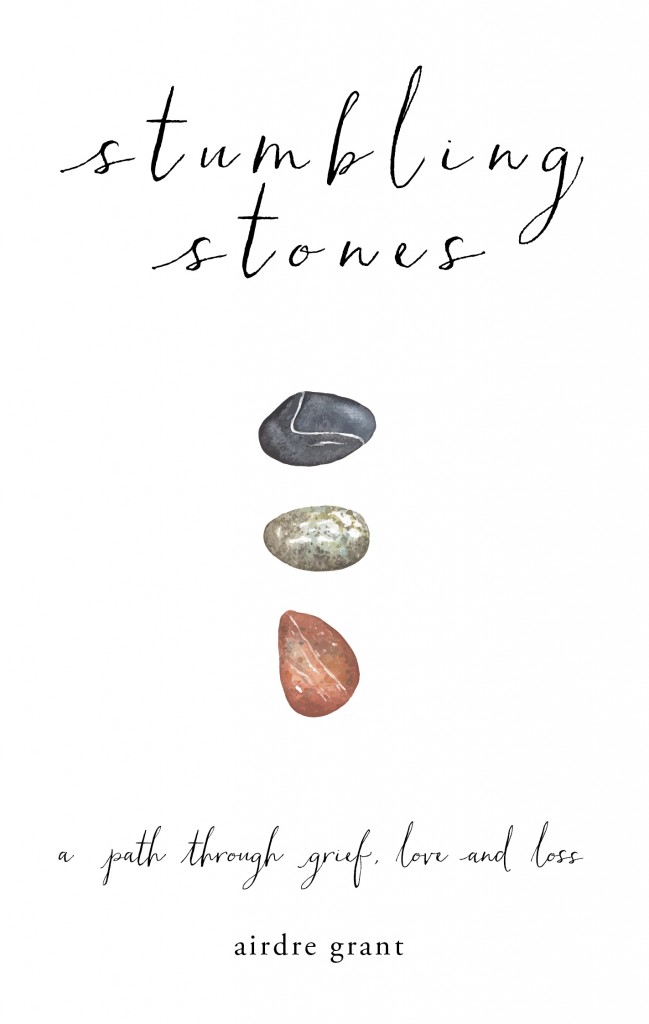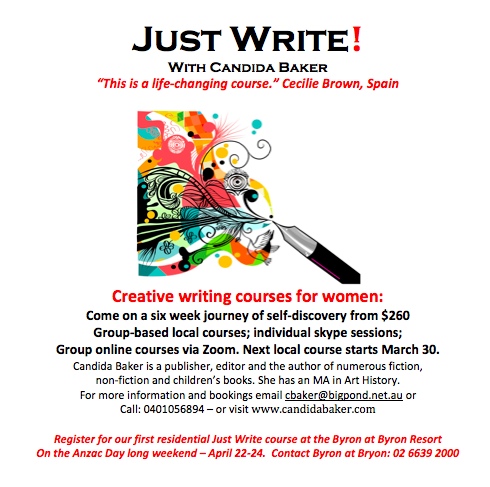We all have to walk the lonely road of loss, grief and depression at some point, and perhaps, if we are lucky someone shines a torch along the route. Siboney Duff reviews Airdre Grant’s moving book Stumbling Stones.
‘In olden days, when maps were drawn and the cartographers didn’t know what was in the empty space, they would write ‘Here Be Dragons’ to signify unknown and possibly dangerous territory.’ So begins Chapter One of Airdre Grant’s Stumbling Stones, a poignant, tender and astutely written treatise on the nature of grief, the unexpected emotional depths – both incapacitating and bouying – that loss forces us to encounter, and the blessings – seemingly out of context – that can accompany the most painful of human emotions.
In a mercilessly short space of time, Airdre Grant, a writer and academic living just outside Lismore, experienced the deaths of both her father and twin brother, the deaths of her dog and cat, and the end of her relationship. In Stumbling Stones she documents, through short stories, insightful observations, and tender recollections, her journey through those losses, and the unexpected positives she encountered along the way. She also offers, in the most respectful of manners, advice for dealing with the avalanche of emotions that at first grip us and then, as time passes, ebb and flow through our lives once we’ve been touched by acute grief.
Feeling overwhelmed and in need of distraction, Grant sought respite and refuge through pilgrimage. She traveled to the northern hemisphere, to walk and to heal. Along the way, she met others whose tales of love and loss were to leave an indelible impression on Grant’s heart. Like Jemma, whose husband Steve left her for a woman decades her junior. Or Susie, whose despairing grief for the child that never was, heralded a chain of further losses. Each story, masterfully told, both engages and illuminates, and is enhanced by references to research and comments by Plato, Ghandi, Shakespeare and the like.
I must confess that I was somewhat wary about reviewing this book. Anything which can be cataloged under the broadest of literature categories – that of ‘self help’ – is likely to have me raising a single eyebrow in wry amusement. Or at least it would if I were talented enough to manage such an expression – in truth, my wry amusement is denoted by the simultaneous raising of two eyebrows, a look that renders me bemused rather than derisive. But I digress. The fact is that I was initially hesitant to review Stumbling Stones for a number of reasons, not least of which is the tendency I find amongst too many in this genre to generalise, patronise and prescribe to its readership. So it was a genuine joy to discover in Grant’s text both an empathetic heart and a sharp intellect. The fact that Grant intersperses her stories, observations and musings with quotes from the likes of Elizabeth Barrett Browning and Charles Dickens simply served to further warm the cockles of my literary heart.
Perhaps the aspect of this book that spoke most clearly to me was Grant’s position regarding not only the experience of loss but also the responsibility inherent within that experience, a point which resonated with me personally long after I had finished reading the book. Our ‘veneration of popular culture idols and personal heroes,’ she writes, ‘also speaks to a simplification of that grief and an unwillingness to accept the responsibility that comes with love, to let another, dead or alive, breathe and move from their amber vessel.’ This, like so many other comments made throughout the book, left me thoughtful and, perhaps surprisingly, at peace. Having approached Stumbling Stones with a wary albeit curious eye, I came away from it one of its most ardent fans.






